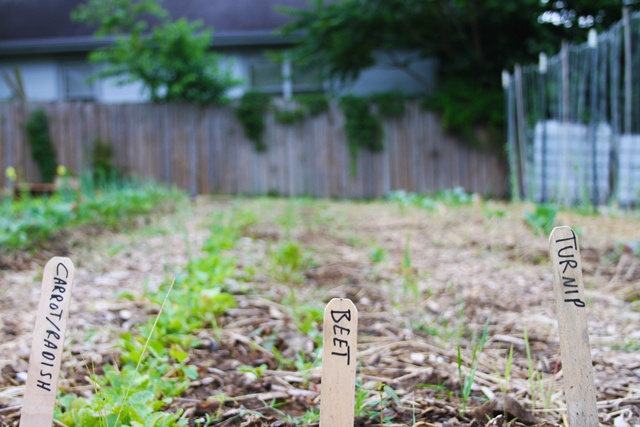By Sarah Geegan
For the Central Kentucky Council for Peace and Justice, it was an opportunity to reorganize youth programs; for the nonprofit Seedleaf, it was a way to better connect with volunteers; and for students in geography Professor Matt Wilson's class, it was the chance to apply their skills to engage with the Lexington community.
Students in Wilson's Geographic Information Systems (GIS) Workshop course spent the past semester applying their knowledge of geographic technology from the classroom to assist real organizations in Lexington. The course, which capitalizes on resources within the College of Arts and Sciences, provides students with hands-on experience through community-based partnerships. Students incorporate mapping techniques and technology to enhance community organizations' operations.
"GIS Workshop is a great opportunity, primarily because it provides students with a capstone experience that allows them to apply the skills that they've already learned in their first and second years," Wilson said. "It's also great for community partners who otherwise would not have access to these rather expensive and sometimes time-consuming technologies — to be able to spend 12-13 weeks working with university students to build products that they can actually use in their day-to-day lives."
Geography student Amanda Witbeck worked with the Central Kentucky Council for Peace and Justice (CKCPJ), creating maps that showed the spatial priorities of youth in Lexington. This involved utilizing a survey to determine the needs of high-risk youth, then mapping the data.
"These youth helped develop questions that they thought were really important to ask other youth," Kerby Neill, volunteer coordinator for the CKCPJ said. "We were very excited when we could begin to map these kinds of issues. We could say, 'where are the kids that are responding to this living, and where are their needs, and how do they compare with where the services are?'"
Neill said that a shortage of youth services represented a large concern for the CKCPJ, as programs for inner-city and at-risk youth had been shrinking dramatically. The new data will allow the organization to enhance the youth services that it offers.
"These maps that we made will probably be used in the next year to make some real differences in the Lexington community," Witbeck said.
Geography and German student Jon Finnie voiced the same sentiment with his community partnership.
 Seedleaf is a nonprofit organization that installs and maintains community gardens. With eight free and open community gardens, as well as eight market gardens from which the organization sells food online, Seedleaf serves to address food-related issues in areas with diet-related health problems.
Seedleaf is a nonprofit organization that installs and maintains community gardens. With eight free and open community gardens, as well as eight market gardens from which the organization sells food online, Seedleaf serves to address food-related issues in areas with diet-related health problems.
"With the GIS Workshop, we wanted to do two things," Finnie said, "First off, we wanted to make maps that would help them communicate to the community — to both volunteers and to people who otherwise had not known about Seedleaf, just help them communicate where and what they do. The second thing was to create some maps using things like census data that would help Seedleaf communicate where exactly in town people were finding it difficult to access tasty, nutritious food, which is typically more expensive, so we tied that back to income data."
Seedleaf founder and director Ryan Koch said that the students' help with connecting with volunteers was immensely useful.
"To have volunteer labor come out and catch a garden up, it means a lot to our organization, and it means a lot to the yield in the garden," Koch said. "Our stuff just does better when there are more hands on board, and to be able to make it accessible to volunteers was a big deal."
The maps also identified the locations of all Seedleaf gardens, helping demonstrate that the organization was addressing diet-related issues in key areas.
"We really want to demonstrate that we're doing our programming in these food deserts for a reason," Koch said.
Wilson said he was extremely pleased with the students' efforts as well as the real-world experience that the community partners provided.
"GIS Workshop is just one example of the many ways that we are trying to build connections to the community within the College of Arts and Sciences," Wilson said. "I look forward to future opportunities to do this kind of work."
